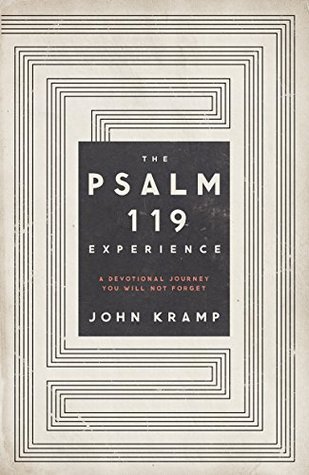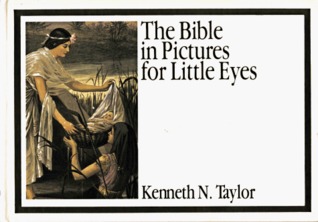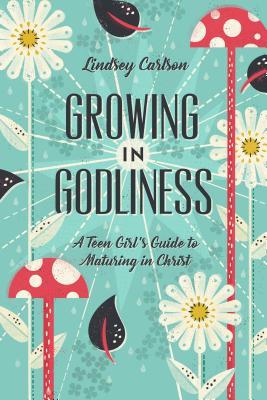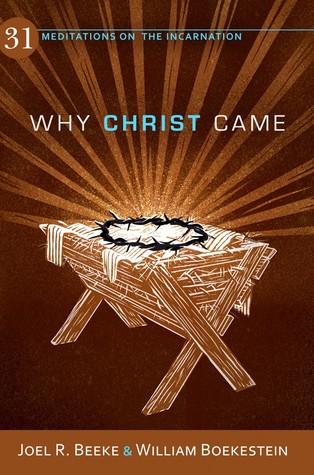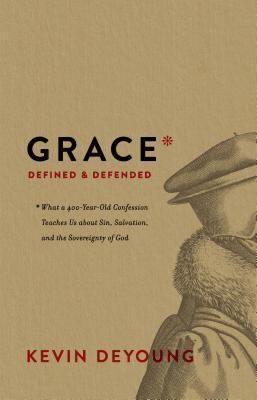First sentence: This book begins in a surprising place: with a love poem.
I loved, loved, LOVED, LOVED, LOVED rereading Kevin DeYoung's Taking God At His Word. The book is about THE BOOK. (I love reading books about the Bible. I do.) How should a Christian feel about the Bible? How should a Christian treat the Bible? What should be our response, our reaction, to the WORD? What should the Bible mean to us? Yes, those questions are all closely related to one another. But there are shades of difference--in my opinion. A person can believe the Bible should have authority over one's life and yet not love the Word. A person can believe the Bible to be THE WORD OF GOD and yet be starving themselves because they are not delighting or feasting on it. There is head knowledge and heart. This book addresses a bit of both.
The opening chapter is perhaps the most important. He begins with the SO WHAT? When I was in college, I was taught to write papers with the SO WHAT? in mind. It often comes in the concluding paragraph. A professor once said that the first draft gives you your SO WHAT in the conclusion, and in the second draft you put it where it belongs: the introduction. I love that DeYoung starts in an unexpected place--the "conclusion."
So his first chapter is an exposition of PSALM 119. He writes,
Psalm 119 shows us what to believe about the word of God, what to feel about the word of God, and what to do with the word of God... Psalm 119 is the explosion of praise made possible by an orthodox and evangelical doctrine of Scripture... Too often, Christians reflect on only what they should believe about the word of God. But Psalm 119 will not let us stop there. This love poem forces us to consider how we feel about the word of God. We see that the psalmist has three fundamental affections for God’s word. First, he delights in it. Second, he desires it. Third, he depends on it... The goal of this book is to get us believing what we should about the Bible, feeling what we should about the Bible, and to get us doing what we ought to do with the Bible.Each of the following chapters is an exposition of Scriptural passages about the Bible. DeYoung unpacks the following verses: 2 Peter 1:16-21, Hebrews 1:1-4, Deuteronomy 30:11-14, Acts 17:1-15, 1 Corinthians 2:6-13, John 10:35-36, Matthew 5:17-19, Matthew 12:38-42, 2 Timothy 3:14-17.
DeYoung is not asking readers to take his word for it; DeYoung is asking readers to take GOD at HIS word. There is a difference. Christian teachers can--for better or worse--give an impression that you should AGREE with them and that if you don't agree with THEM then your Christianity is lacking. That is often a misunderstanding. (Though not always.) Do YOU believe what the Bible has to say about itself?
Quotes:
What we believe and feel about the word of God are absolutely crucial, if for no other reason than that they should mirror what we believe and feel about Jesus. As we’ll see, Jesus believed unequivocally all that was written in the Scriptures. If we are to be his disciples, we should believe the same. Just as importantly, the New Testament teaches that Jesus is the word made flesh, which means (among other things) that all the attributes of God’s verbal revelation (truth, righteousness, power, veracity, wisdom, omniscience) will be found in the person of Christ. All that the psalmist believed and felt about the words from God is all that we should feel and believe about the Word of God incarnate. Our desire, delight, and dependence on the words of Scripture do not grow inversely to our desire, delight, and dependence on Jesus Christ. The two must always rise together.
This is a book unpacking what the Bible says about the Bible. My aim is to be simple, uncluttered, straightforward, and manifestly biblical. I make no pretenses about offering you anything other than a doctrine of Scripture derived from Scripture itself.
May God give us ears, for we all need to hear the word of God more than God needs any of us to defend it.
You cannot put more confidence in your Bible than Peter put in his. Notice three truths these verses teach us about the nature of Scripture. First, Scripture is the word of God. Second, the word of God is no less divine because it is given through human instrumentality. Third, the Bible is without error.
To deny, disregard, edit, alter, reject, or rule out anything in God’s word is to commit the sin of unbelief.
You can think too highly of your interpretations of Scripture, but you cannot think too highly of Scripture’s interpretation of itself. You can exaggerate your authority in handling the Scriptures, but you cannot exaggerate the Scriptures’ authority to handle you. You can use the word of God to come to wrong conclusions, but you cannot find any wrong conclusions in the word of God.
God’s word is final; God’s word is understandable; God’s word is necessary; and God’s word is enough.
Scripture is enough because the work of Christ is enough. They stand or fall together. The Son’s redemption and the Son’s revelation must both be sufficient. And as such, there is nothing more to be done and nothing more to be known for our salvation and for our Christian walk than what we see and know about Christ and through Christ in his Spirit’s book.
God’s people should be testing everything against God’s word. Whether we are the ones teaching or listening, we need to have our Bibles open like the Bereans.
This passage [Acts 17:1-15] perfectly demonstrates what it means to affirm the authority of the Bible. When it says the Bereans were “examining the Scriptures daily to see if these things were so” (Acts 17:11), the implication is that if the Scripture said it, they would believe it. And if they couldn’t find Paul’s teaching confirmed in and consistent with the Scripture, they would reject Paul’s teaching. The written word of God was their authority. It had the last word. It was the final word, after which no other word would be necessary, and contrary to which no other word would be believed.
If you are a Christian, by definition you ought to believe what Jesus teaches. He is the Son of God. He is our Savior and Lord. We must follow his example, obey his commands, and embrace whatever understanding of Scripture he taught and assumed. Surely this means we are wise to believe about the Scriptures whatever Jesus believed about the Scriptures.
We are sometimes told that the final authority for us as Christians should be Christ, and not the Scriptures. It is suggested that Christ would have us accept only the portions of Scripture that comport with his life and teaching; that certain aspects of biblical history, chronology, and cosmology need not bother us because Christ would not have us be bothered by them. The idea put forward by many liberal Christians and by not a few self-proclaimed evangelicals is that we are to worship Christ and not the Scriptures; we must let Christ stand apart from Scripture and above it. “But who is this Christ, the Judge of Scripture?” Packer asks. “Not the Christ of the New Testament and of history. That Christ does not judge Scripture; He obeys it and fulfills it. By word and deed He endorses the authority of the whole of it.” Those with a high view of Scripture are often charged with idolatry for so deeply reverencing the word of God. But the accusation is laid at the wrong feet. “A Christ who permits His followers to set Him up as the Judge of Scripture, One by whom its authority must be confirmed before it becomes binding and by whose adverse sentence it is in places annulled, is a Christ of human imagination, made in the theologian’s own image, One whose attitude to Scripture is the opposite of that of the Christ of history. If the construction of such a Christ is not a breach of the second commandment, it is hard to see what is.” Jesus may have seen himself as the focal point of Scripture, but never as a judge of it. The only Jesus who stands above Scripture is the Jesus of our own invention.
Jesus held Scripture in the highest possible esteem. He knew his Bible intimately and loved it deeply. He often spoke with the language of Scripture. He easily alluded to Scripture. And in his moments of greatest trial and weakness—like being tempted by the Devil or being killed on a cross—he quoted Scripture.
Jesus believed in the inspiration of Scripture—all of it. He accepted the chronology, the miracles, and the authorial ascriptions as giving the straightforward facts of history. He believed in keeping the spirit of the law without ever minimizing the letter of the law. He affirmed the human authorship of Scripture while at the same time bearing witness to the ultimate divine authorship of the Scriptures. He treated the Bible as a necessary word, a sufficient word, a clear word, and the final word. It was never acceptable in his mind to contradict Scripture or stand above Scripture. He believed the Bible was all true, all edifying, all important, and all about him. He believed absolutely that the Bible was from God and was absolutely free from error. What Scripture says, God says; and what God said was recorded infallibly in Scripture.
If the view of inspiration taught in 2 Timothy 3:16 were not already assumed, Psalm 119 would be tantamount to idolatry.
It’s not necessarily a sign of growth to move past the faith of your childhood, and not necessarily a weakness to believe the same thing throughout your whole life. What an inestimable privilege to be acquainted from childhood with the sacred writings.
Every book, every chapter, every line, every word—all of it is breathed out by God. Not just the obviously theological parts. Not just the memorable stuff. Not just the parts that resonate with us. All of it—history, chronology, philosophy—every truth the Bible affirms ought to be taken as God’s truth. Every word in the Bible is in there because God wanted it there. And therefore, we should listen to the Bible and stick with the Bible and submit ourselves to the teaching of the Bible because it is God’s Bible—both the sacred writings of the Old Testament, which Paul first of all had in mind, and the inspired writings for the new covenant church, which Paul understood himself to be issuing (1 Thess. 2:13) and Peter understood to be in the process of being written down (2 Pet. 3:16).
The unity of Scripture also means we should be rid, once and for all, of this “red letter” nonsense, as if the words of Jesus are the really important verses in Scripture and carry more authority and are somehow more directly divine than other verses...All Scripture is breathed out by God, not just the parts spoken by Jesus.
We must not seek to know the Word who is divine apart from the divine words of the Bible, and we ought not read the words of the Bible without an eye to the Word incarnate.
We can never outgrow the Bible, because it always means to make us grow. The Bible is only impractical for the immature, and only irrelevant for the fools who believe that most everything is new under the sun.
© Becky Laney of Operation Actually Read Bible


